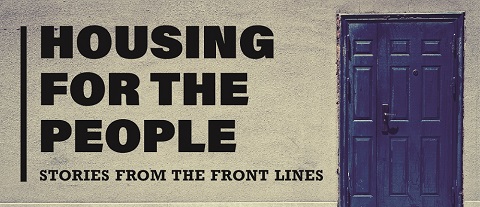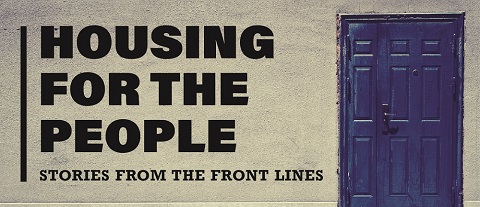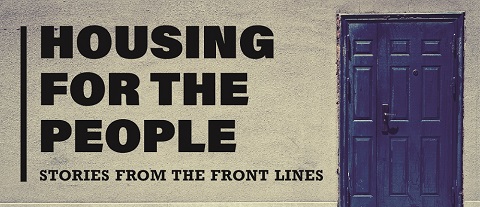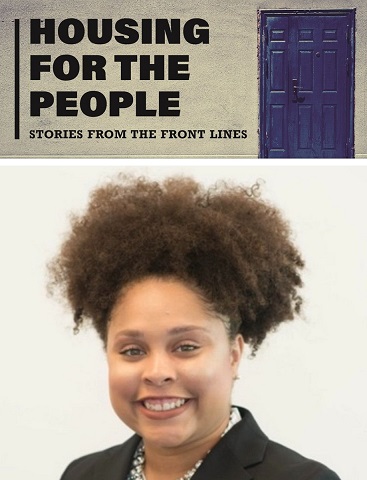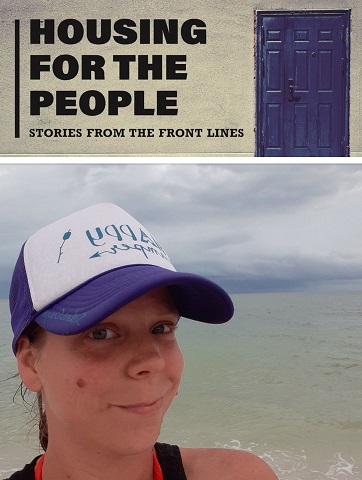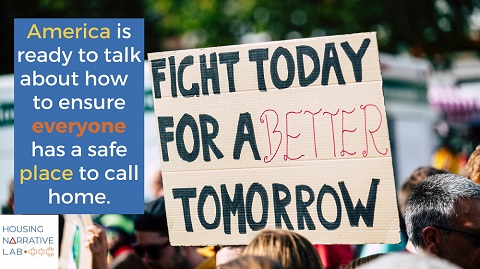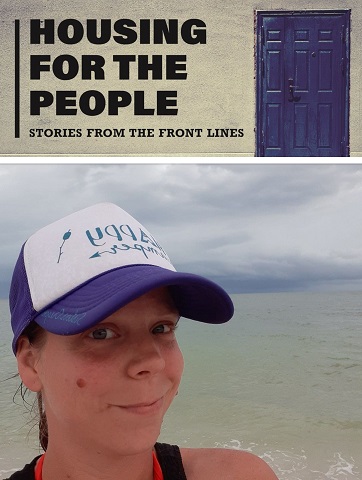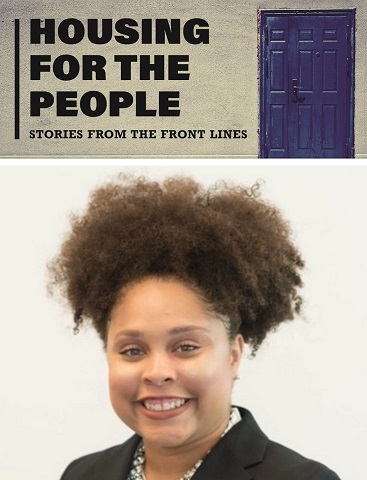By Poul Struve Nielsen, Hus Forbi
The Danish Street paper Hus Forbi has started a collection – not for Christmas but to support homeless people in Denmark who are being fined and criminalised for being homeless.
As of October of this year, it has de facto been illegal to be homeless in Denmark – or at least to sleep in the street.
Two Hus Forbi vendors went to sleep for the night between Monday 30 and Tuesday 31 October. They were in a pedestrian street in central Copenhagen, the Danish capital and one of the biggest cities of the Nordic countries.
A little further down the street some other homeless people had gone to sleep. However, they did not get much sleep that night. They were disturbed by the police, who gave them a fine of DKK 1,000 (around £120) because they had established something that the police defined as an “insecurity creating camp”.
There is no legislation in Denmark about what this means. However, police regulations have started to treat even the flimsiest of examples as “a camp that creates insecurity”. Recently, a Romanian citizen was fined DKK 750 for sleeping alone in a one-man camp in Copenhagen, an action which was upheld by a verdict in the district court.
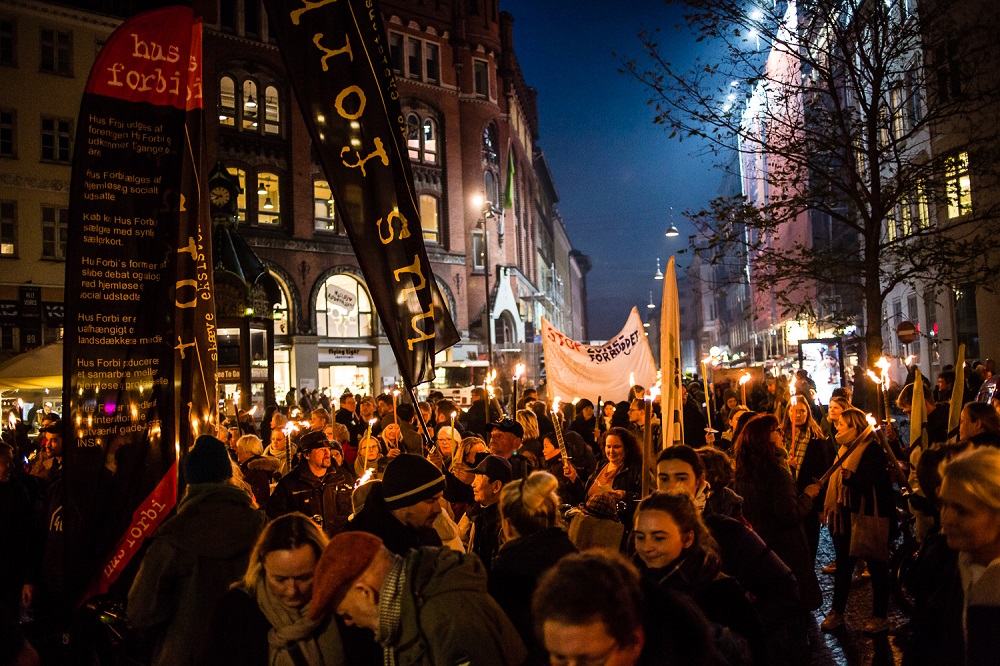
Insecurity
Insecurity, in this respect, is not the insecurity that a homeless person has to deal with when sleeping in the streets, at risk of being beaten up, robbed, raped, urinated on and myriad other awful things which can happen. It is some sort of unclearly defined insecurity that the surrounding world may feel due to homeless people sleeping near pedestrian areas.
In addition to the fine, the homeless people who have experienced such treatment are also subject to an extended zone ban, which applies to the entire municipality of Copenhagen for three months.
“It is a ban on moving back and forth or staying in the municipality of Copenhagen,” says jurist Maja Løvbjerg Hansen from the Danish organisation Gadejuristen [The Street lawyer], which provides legal assistance to people on the streets.”
She says that the ban does not mean that homeless people cannot be in the area. “They may be in a hostel or a shelter if they happen to stay there. They may be doing some shopping. They may be going to a doctor or a nurse. If they have work, they can do their job, and if they are in treatment for taking drugs or alcohol, they can come to town for the relevant meetings. But the ban means that they are not allowed to stay on the street or walk around without a purpose in the city – the zone – that they are banned from.”
Homeless people affected by a zone ban are not allowed to find a place to sleep in that municipality. So far, only in Copenhagen has there been such a ban on homeless people.
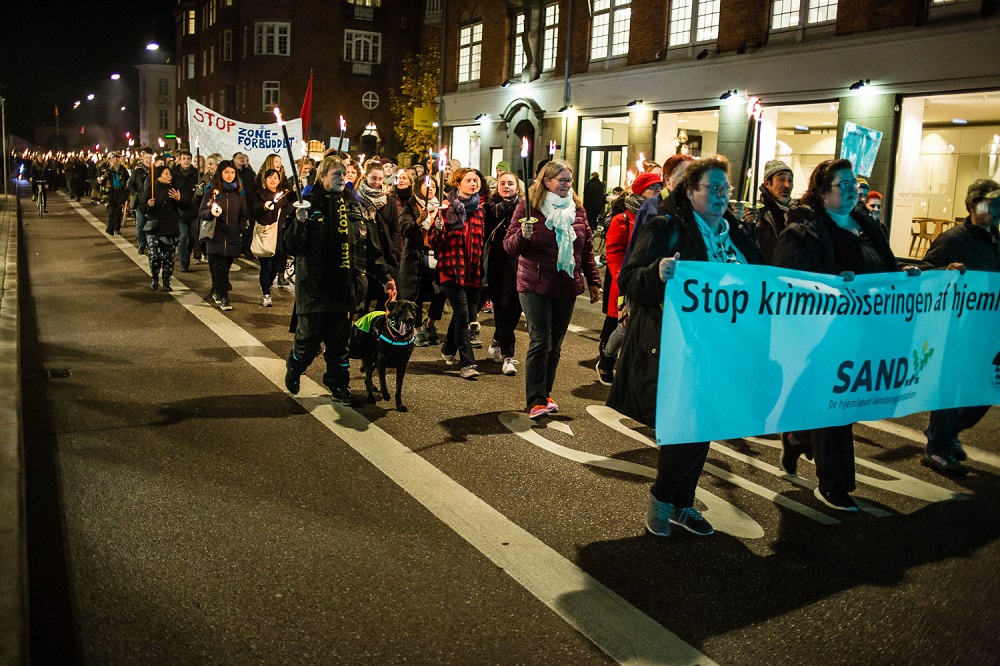
Cannot be inside
“I have some mental illnesses with a few diagnoses that make me feel stuck in a room. I also cannot live in an apartment. It does not suit me to be alone with the emptiness between four walls. I also cannot cope with the sounds in an apartment where you may hear the neighbour walking and vacuuming. There are some people that are just different from most people, and I’m one of them,” says Hus Forbi vendor André, who has been affected by these anti-homelessness policies.
He has been living on the street for many years and is almost an institution around Nørreport, the most central train station in the inner city area of Copenhagen, where his acquaintances also include shopkeepers in the area, and even some of the policemen and women who patrol there.
“I have a network with other homeless people, people who buy the street paper and others who come by and talk to me in the district around Nørreport,” he says. “My life is in the street. A room in a hostel is not a solution for me. My problem is the zone ban which means I cannot be in public space. My life is around Nørreport, and I need to come to a nurse in a nearby street.
“For many years I have been sitting around Kultorvet [the Coal Square, a square right next to the station]. I have my own clientele and my entire network. It takes years to build up. Everything I know is in Copenhagen. I have been on the streets of Copenhagen for so many years.”
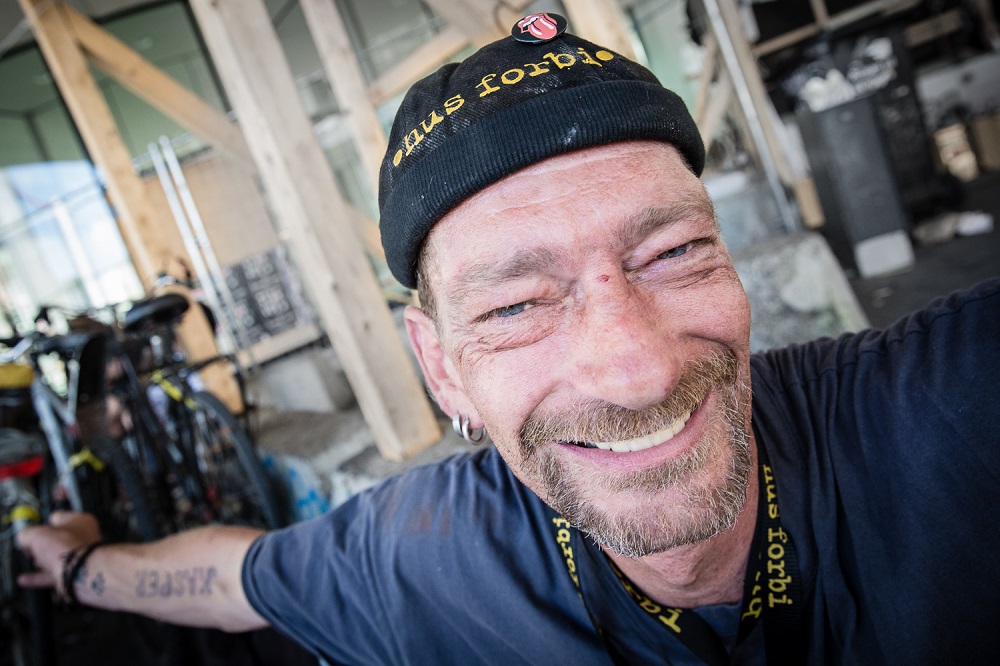
Extra hard hit
The law about the zone ban for homeless people was supported by a vast majority in the Danish parliament (consisting of the conservative liberal government, the right-wing populist party called The Danish People’s Party and the Social Democrats). The politicians say that the target group for the zone ban is homeless people from foreign countries – not the Danish homeless population.
The Prime Mister, as well as the Minister for Justice, have both in clear language declared that the legislation has been passed to get “foreigners” away from the street. However, the government campaign cannot legislation in such a way that the Danish homeless community are not in some way touched by the law.
The Danish Prime Minister, Lars Løkke Rasmussen, was asked about the situation and answered the following in Parliament: “When we made rules about banning unaccompanied begging and camp formation, it was in the summer of 2017, where our capital area, as seen throughout Europe, was the subject of an influx of people, many of which have a Roma background, that embellished our entire cityscape and created insecurity. We addressed it and it worked.”
However, homeless people of all stripes are being hit hard by the zone ban, according to Løvbjerg Hansen. “This affects the Danish homeless community harder than it affects homeless people without an affiliation to the city,” she says.
While Danish homeless people have a network and the right to access some pre-ordained services, including free healthcare and social benefits, non-Danish homeless people usually do not.
This is confirmed by André. “It’s incredibly stressful. I’m breaking my zone ban if I sit for five minutes with my companions. I do not do that to provoke, but because even my own son comes to see me in central Copenhagen. When my kid calls and asks ‘Dad are you at home?’, he means: ‘Are you at Nørreport?’”
André adds that it’s also incredibly tiring to go out of town and in again every time he has an errand. “I’ve never travelled so much. My dog, Odin, also does a crazy number of miles. I can feel that he is tired.”
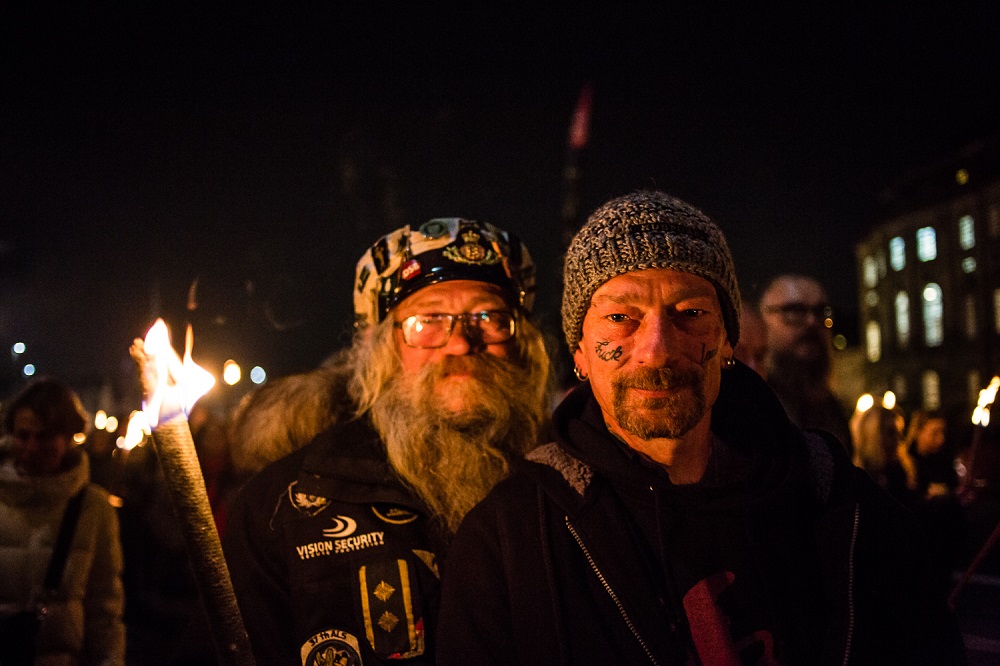
Support from Hus Forbi
The law pertaining to the zone ban was passed by the Danish Parliament in March. The Danish street paper Hus Forbi writes in an editorial, published in December, that there was never any need for such a law. The police have always had law enforcement tools to dissolve any camp that may create insecurity for others.
The Social Democratic mayor in Copenhagen, and former Danish Minister for Justice, Frank Jensen, stated publicly, in November 2016, that the police in Copenhagen at that time had dissolved 48 camps for homeless people in that year alone.
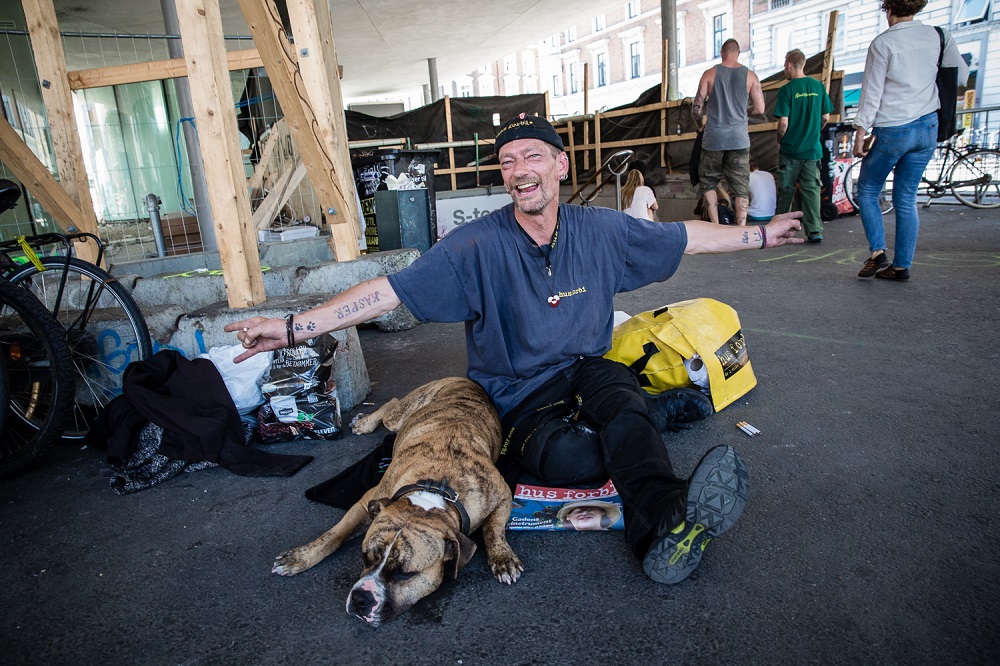
The Hus Forbi collection fund is for legal assistance as well as for paying fines for homeless people, if necessary. This is supposed to be organised in collaboration with Danish NGOs working to support their fellow citizens who are homeless.
Henrik Søndergaard Pedersen, chairman of the Hus Forbi Association, which publishes the street paper, said: “It is hard to understand that a large majority in the Danish Parliament, during changing governments, has been unable to prevent the number of homeless people from rising steadily by approximately 30 per cent during the last ten years, and now, instead of leading a proper social policy, has politically agreed to make homeless people’s mere existence unlawful. It is our people who are exposed to this and we cannot just vanish from the face of earth. Therefore, we will help homeless people to pay their fines so that they can continue to live, even though it is illegal. First and foremost, possibilities of appeal must of course be exhausted.”
Editing by Tony Inglis









